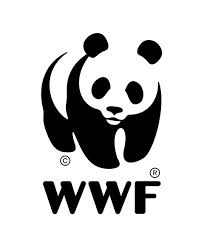Foodwise Tests Climate-Smart Farming Model in Mississippi Delta To Boost Local Economy and Address Inequality
Project is first proof-of-concept for World Wildlife Fund efforts to avoid habitat destruction by proactively shifting where our food is grown.
- As climate change impacts escalate, relying only on California to produce the majority of fruits, vegetables, and other specialty crops is no longer sustainable.
- WWF’s new report, “The Next California — Phase II: Preparing for Action” details outcomes of extensive research and next steps to transition appropriate specialty crops to the Mid-Mississippi Delta region.
June 4, 2024 /3BL/ - A collaborative effort of dozens of farmers, producers, scientists, and other experts is poised to launch an agricultural renaissance in the Mid-Mississippi Delta region across Tennessee, Arkansas, and Mississippi. Foodwise, the first project to test the concepts outlined in WWF’s Next California initiative, is working with Black and women farmers across the Delta to build a more nutritious, farmer-strong, consumer-centric, and climate-friendly rice industry. The project will invest in research and development to improve rice varieties and create seed stock, which it will sell to farmers to build a pipeline of supply. It will also provide technical assistance, storage, processing, and market contracts.
“We are determined to capture a significant opportunity for women and minority farmers to participate in larger specialty rice contracts,” said Hallie Shoffner, the sixth-generation Arkansas farmer who created Foodwise and serves on the Next California Advisory Council. “While we still face significant hurdles, we’ve already hit some major milestones, including securing our first wholesale buyer contract. You’ll be able to buy Delta-produced specialty rice in stores next year.”
As impacts of climate change require us to find new places to grow our food, WWF proposes proactively shifting production of some specialty crops—fruits, vegetables, nuts, and nutritious grains—to existing farmland well-suited to these crops. WWF identified the Mid-Mississippi Delta region as an ideal candidate, due to its rich agricultural history and expertise, along with plentiful resources and agricultural lands.
“Climate change is putting increased pressure on our already tenuous food supply chain. If we don’t have a plan now, we’re going to see more conversion of natural spaces like forests, grasslands, and wetlands. And that will only make the climate and biodiversity crises worse,” said Julia Kurnik, senior director of innovation start-ups at WWF. “But here’s the thing—as we rethink where we grow our food we should also rethink how. We can build a better system from the ground up, ensuring that growers who have traditionally been shut out of markets can benefit along with the rest of the region.”
The Mid-Delta region currently focuses mainly on large-scale production of commodity row crops like cotton, white rice, and soy and corn for animal feed. But these crops yield low profit margins, making it increasingly difficult for small farmers to make a living. By shifting land to specialty crops and employing innovative finance and production mechanisms, small farmers—particularly Black farmers who face challenges resulting from centuries of racist and inequitable policies—will have greater access to national and more profitable markets.
“For farmers who are already living on the thinnest of margins, we know this is a risky proposition. If they grow it and no one buys it, that’s a year’s worth of work and income lost,” said Pete Nelson, President of AgLaunch and co-host of the Advisory Council. “We’re working to take as much of the risk out as possible, creating a robust support network, plus market and financing connections. And we’re pairing that with research to address practical concerns, like meeting labor requirements and determining which seed varietals are best suited to our climate.”
WWF outlines all work on the project to date in its comprehensive Next California: Phase II report, providing context on farming in the region today and a vision for the future. It candidly discusses potential hurdles to and unintended consequences of large-scale implementation. The report also explores proven successes of innovative business and finance models, and opportunities to break into large markets, concluding with next steps for Phase III of the project.
"There are already small farmers growing specialty crops in the Delta, and we are proof that the basis of the idea is sound. What I'm most interested in are the opportunities that will come along with small farmers joining together to grow these crops at scale," said Matthew Robinson, Advisory Council member and owner of The Produce Tribe. "Together we can access new markets, attract investors, and build up the infrastructure to benefit all of us. We have the potential to transform farming in the Delta and make it a fundamental, prosperous occupation for future generations."
###
Media Contact: Lorin.Hancock@wwfus.org
About WWF
WWF is one of the world’s leading conservation organizations, working in nearly 100 countries for over half a century to help people and nature thrive. With the support of more than 5 million members worldwide, WWF is dedicated to delivering science-based solutions to preserve the diversity and abundance of life on Earth, halt the degradation of the environment and combat the climate crisis. Visit http://www.worldwildlife.org to learn more and keep up with the latest conservation news by following @WWFNews on Twitter and signing up for our newsletter and news alerts here.

